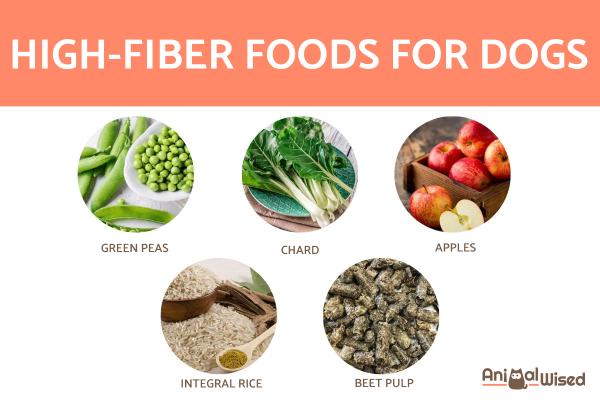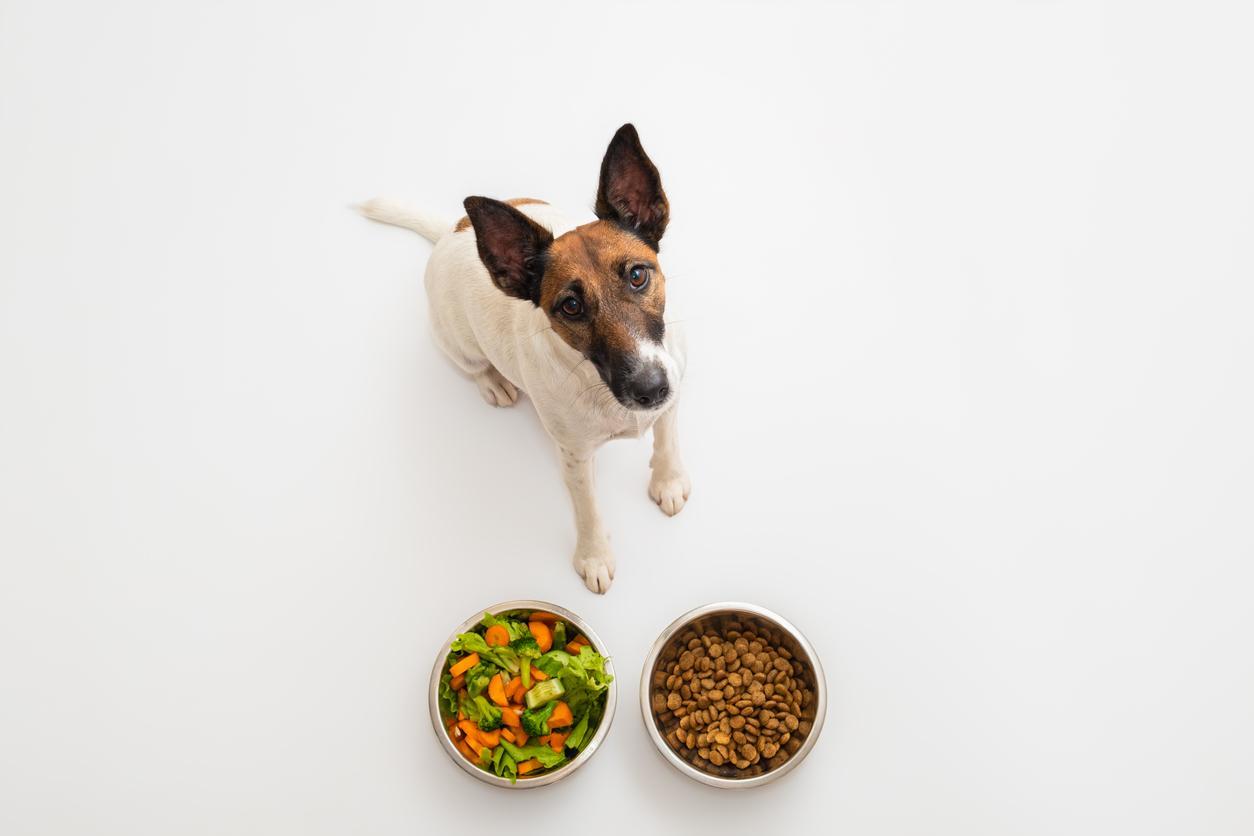Dietary Fiber for Dogs - Importance, Recommended Foods and Supplements



See files for Dogs
Although the digestive system of dogs is unable to digest and absorb dietary fiber, it is a necessary nutrient in their diet that provides important benefits to their intestinal health. Fiber is often fermented into fatty acids by the beneficial bacteria found in your dog's intestines. As a general rule, dogs need 2-5% fiber in their diet, although there are certain physiological and pathological situations in which this value should be higher.
The following AnimalWised article explains why fiber is important for dogs and which foods and supplements contain fiber.
Why is dietary fiber important for dogs?
Dogs are monogastric animals (they have only one stomach), which means that they cannot digest fibers. However, even though they cannot digest it, fiber has significant benefits for their gut health and is therefore an important nutrient in a dog's diet. Specifically, fiber should make up between 2-5% of the dry matter in a dog's diet.
The main benefits of dietary fiber for dogs are the following:
- Fiber in the diet increases volume and promotes satiety without adding calories.
- Insoluble fiber (high in cellulose and lignin) speeds intestinal transit, which is especially beneficial in animals prone to constipation.
- An adequate amount of soluble fiber in the diet regulates the consistency of the stool. If there is a lack of soluble fiber, the feces will not be adequately formed (it will have a lower consistency), which can lead to anal sac obstruction, causing great pain and discomfort in dogs.
- As we mentioned earlier, dogs do not have the enzymes needed to digest fibrous sugars. Therefore, it is a nutrient that does not serve as a direct source of energy for the animal. However, once fiber reaches the large intestine, it is fermented by the intestinal microbiota (bacteria and yeasts), providing energy to these microorganisms and promoting the growth of beneficial intestinal microbiota. Therefore, dietary fiber is considered a prebiotic.
In addition, there are certain physiological and pathological situations in which increasing the amount of dietary fiber is recommended, as it provides important benefits for dogs in these situations:
- Senior dogs: In older dogs, it is advisable to increase the amount of fiber in the diet for two reasons. First, basal metabolic rate decreases by up to 20%, which means that dietary energy intake must be reduced. An efficient way to reduce the energy content of the ration without inducing a lower feeling of satiety is to increase the fiber content. In addition, older dogs are prone to constipation. Increasing the amount of insoluble fiber in combination with a higher water intake and moderate exercise will benefit our pet's intestinal transit.
- Obesity: In overweight dogs, the fiber content can be increased by up to 15%, as it induces a feeling of satiety and adds volume to the food without increasing the energy value.
- Diabetes: the diet of diabetic dogs is characterized by a low fat content (less than 15%) and, above all, by a high fiber content (between 15-22%, both soluble and insoluble fiber). Dietary fiber is particularly important in the diet of diabetic dogs because it reduces glucose absorption and lowers insulin requirements.
- Dogs with digestive problems: Dogs with diarrheal conditions such as enteritis or inflammatory bowel disease (IBD) need a diet rich in soluble fiber, as it absorbs some water during digestion and contributes to better-formed feces. On the other hand, dogs prone to constipation need a diet rich in insoluble fiber, which increases the speed of intestinal transit.
If you notice your dog is having digestive issues, it's best to know all the possible causes, so you can act accordingly.

High fiber food for dogs
There is a wide selection of high fiber dog foods. Foods commonly used as sources of fiber for dogs include, in particular, fruits, vegetables, vegetable by-products, and whole grain products.
- Fruits and vegetables: the main fiber vegetables for dogs are carrots, squash, spinach, Swiss chard, peas and green beans. Remember that all of these vegetables should be cooked and not fed raw. Apples are also a good source of fiber for dogs. However, they should not be offered in excess and if they are, we should remove the seeds from the core as they can be toxic.
- By-products of vegetable origin: among them, the pulps are particularly recommended as they provide soluble fiber. One of the most common sources of fiber for dogs is beet pulp.
- Whole grains and cereals: brown rice or wheat bran are also good sources of fiber for dogs.
Also check AnimalWised for fruits and vegetables that are off limits to dogs, so you can adjust your dog's diet and prevent health problems.

Fiber supplements for dogs, when are they necessary?
As we have already mentioned, the dog's diet should contain between 2-5% fiber. So, most diets adhere to these values to meet your dog's nutritional needs. However, we have also pointed out that there are certain physiological and pathological situations in which it is necessary to increase the percentage of fiber in the diet.
As a reminder, the situations in which your dog needs a higher intake of dietary fiber are the following:
- Advanced age
- Obesity
- Diabetes
- Digestive disorders (Diarrhea, constipation and anal blockage)
To meet the increased need for fiber in these cases, you can administer a dietary fiber supplement. These supplements are usually made from vegetable ingredients, pulp and bran, so they have a high concentration of fiber. An alternative to dietary fiber supplements may be to administer dietary fiber foods for dogs.
There are foods on the market that are specially formulated for the cases described above (senior food, light food, food for diabetic dogs or gastrointestinal food). Regardless of how you want to implement the intake of dietary fiber for your dog, you should consult with your trusted veterinarian beforehand to avoid any undesirable effects.

If you want to read similar articles to Dietary Fiber for Dogs - Importance, Recommended Foods and Supplements, we recommend you visit our Healthy diets category.
- European Federation of Pet Food Manufacturers. (2017). Nutritional guides for complete and complementary foods for dogs and cats.
- European Federation of Pet Food Manufacturers. (2020). False myths of carbohydrates in dogs and cats.
- Kellyl, N. (2002). Manual of nutrition and feeding in small animals. JM Tailor life.








